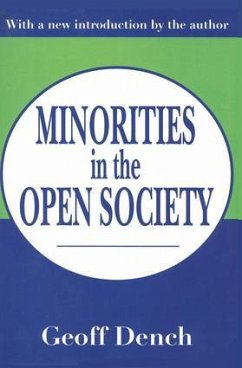Most accounts of ethnic and race relations in Western states are optimistic at heart. They assume that equal participation by minorities will be achieved, because it is a "public good" from which citizens will benefit. Social justice will prevail. In this topical and disturbing book, Geoff Dench challenges these idealistic commentaries, showing that in many instances they do not produce convincing analyses of the position of minorities. He suggests that analysts neglect to explore the web of real interests behind public affirmations of commitment to integration. In his new introduction, the author suggests how the postwar meritocracy in Britain may have used a progressive alliance with minorities in order to help establish itself as a new ruling class. Part 1 of this volume looks briefly at the dual character of modern states; Part 2 explores one of the key services that minority clients perform on behalf of their national masters, namely the exercise of integrative leadership during periods of political crisis and change. Part 3 develops the theme that although the ambiguities of minority status can create special types of opportunity for ambitious individuals, in general they result in dilemmas which members of dominant communities can exploit in order to underline their supremacy. Part 4 takes up some questions raised earlier about the nature of the forces in modern society that impinge on minorities and addresses the implications for a host state of containing oppressed groups. In putting forward his controversial argument, Dench presents a range of contemporary and historical material which illustrates the double-binds created for minorities by dominant communities. Suchcommunities offer equality with one hand while obstructing it with the other. Individual members of minorities may be given the opportunity to achieve social prominence -- but only to carry out special jobs on behalf of the majority. Various cases are examined: how Disraeli, a Je








